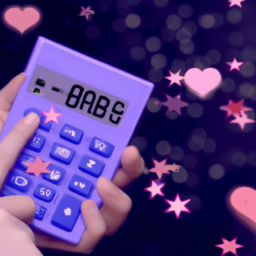Have you ever experienced a dream in which you were hovering in the air? I certainly have, and it’s an intriguing sensation that elicits feelings of wonder and amazement.
As someone who has been fascinated by dreams for a long time, I’ve often wondered what causes this strange sensation. Is there a scientific explanation for it, or is it simply a figment of our imagination?
In this article, I’ll explore the phenomenon of floating in dreams and the various theories that attempt to explain it. We’ll examine the role of REM sleep, the science of dreams, and the potential influence of emotions on our dream experiences. We’ll also look at personal and cultural interpretations of floating dreams, as well as common dream themes that may be related to this phenomenon.
Finally, we’ll discuss some techniques for enhancing dream recall and exploring the fascinating world of dreams.
Key Takeaways
- The sensation of floating in dreams can have different meanings for different people and can be interpreted based on personal experiences and cultural background.
- Theories suggest that the sensation of weightlessness in dreams could be attributed to the brain’s inability to comprehend physical sensations while asleep or the paralysis during REM sleep combined with the vivid and sometimes chaotic nature of dreams.
- Dreams occur during the REM stage of sleep and involve the activation of different regions of the brain. They may serve as a way for the brain to consolidate and process information from the day or as a form of problem-solving or emotional regulation.
- Techniques for enhancing dream recall, such as keeping a dream journal or setting an intention before going to bed, can lead to greater insights into the subconscious mind and provide a way for individuals to explore deeper aspects of themselves and break free from the stresses of daily life.
The Phenomenon of Floating in Dreams
You may have experienced floating in your dreams, and it’s a common phenomenon that can leave you feeling weightless and free. I know I’ve had dreams where I’m floating in the air or even in water.
For me, it feels like I’m in a state of complete relaxation and detachment from the physical world. It’s almost as if I’m levitating, and it’s a surreal experience that I can’t explain.
Floating in dreams can have different meanings for different people. Some may associate it with feelings of freedom, while others may experience it as a sense of detachment from reality. Regardless of the interpretation, the sensation of floating in dreams is fascinating and leaves many wondering why it happens.
So, let’s explore some theories behind floating in dreams.
Theories Behind Floating in Dreams
Although there are various hypotheses, some experts believe that the sensation of weightlessness in dreams could be attributed to our brain’s inability to comprehend physical sensations while we sleep, leaving us with a surreal feeling of flying or levitation. This theory suggests that our brains may not be able to distinguish between the physical reality of gravity and the imagined reality of our dreams, leading to a feeling of floating or weightlessness.
Another theory behind floating in dreams is related to the role of REM sleep. During REM sleep, our bodies are essentially paralyzed, which prevents us from acting out our dreams in real life. Some experts believe that this paralysis, combined with the vivid and sometimes chaotic nature of our dreams, could create a sensation of flying or floating.
Additionally, because we are in a state of deep sleep during REM, our brains may be more susceptible to the bizarre and surreal experiences that can occur in dreams.
The Role of REM Sleep
The role of REM sleep in creating the sensation of weightlessness in dreams is fascinating.
During REM sleep, our bodies are essentially paralyzed, which prevents us from acting out our dreams.
However, this paralysis also causes a feeling of weightlessness, as we are unable to sense the gravity that usually holds us down.
Thus, when we dream about floating or flying, our brains are able to create a vivid and realistic experience of weightlessness because our bodies are in a state of temporary paralysis.
Understanding the role of REM sleep is just one piece of the puzzle when it comes to the science of dreams.
While scientists continue to explore the mechanisms behind dreaming, one thing is clear: our dreams are a complex and mysterious part of the human experience.
The Science of Dreams
Let’s delve into the science behind dreams and explore the mysterious ways in which our brains create vivid and often surreal experiences while we sleep. Dreams are a complex phenomenon that have puzzled scientists for years.
We know that they occur during the rapid eye movement (REM) stage of sleep and involve the activation of different regions of the brain, including the prefrontal cortex, amygdala, and hippocampus. However, the exact mechanisms that govern dream formation and content are still not fully understood.
One theory suggests that dreams are a way for the brain to consolidate and process information from the day. During sleep, the brain replays and rehearses the events and experiences from our waking hours, allowing us to better retain and integrate this information. Other theories propose that dreams serve as a form of problem-solving or emotional regulation.
Regardless of the specific function of dreams, they remain an intriguing and enigmatic aspect of the human experience.
Now, let’s explore the role of emotions in dreaming and how they can impact our sleep experiences.
The Role of Emotions
You may not realize it, but emotions play a significant role in your dreams. Studies show that up to 70% of dream content is influenced by feelings and experiences from the previous day. This means that if you had a particularly stressful day, you may have a dream where you are being chased or threatened. On the other hand, if you had a happy day, you may have a dream where you are surrounded by loved ones or enjoying a fun activity.
The role of emotions in dreams is not limited to just the content; it also affects how we experience and interpret our dreams. For example, if you have a dream where you are floating, it could be interpreted as a positive or negative experience depending on the emotions you associate with it. This is where personal interpretations of dreams come into play.
We will explore this further in the next section.
Personal Interpretations
When interpreting dreams, it’s important to consider our individual experiences and emotions to fully understand the meaning behind them. Floating in dreams can be interpreted differently depending on our personal experiences and emotions. For me, floating in my dreams often represents a feeling of freedom and weightlessness. This may be because I associate floating with swimming, which is an activity that makes me feel free and in control.
To better understand the personal interpretations of floating in dreams, I created a table that outlines some possible associations and emotions that may be linked to this dream experience:
| Personal Associations | Possible Emotions |
|---|---|
| Swimming | Freedom |
| Flying | Excitement |
| Being weightless | Relief |
| Being untethered | Anxiety |
It’s important to note that these associations and emotions may vary from person to person, and that the meaning of dreams is highly subjective. Nonetheless, understanding our personal interpretations can provide insight into our subconscious thoughts and feelings.
Moving on to cultural interpretations, it’s interesting to see how different cultures view floating in dreams.
Cultural Interpretations
I find it fascinating to explore the cultural interpretations of dreams.
The historical and cultural significance of dreams can reveal a lot about a society’s values and beliefs.
Symbolism in different cultures can vary greatly, and understanding these variations can provide insight into the way different groups of people perceive the world around them.
Historical and Cultural Significance
If you were alive during the Renaissance, you might have believed that floating in dreams was a sign of divine intervention. During this period, dreams were considered a bridge between the earthly and the divine realms. People believed that dreams were messages sent by God or other supernatural beings. Therefore, floating or levitating in a dream was interpreted as a sign of spiritual elevation, indicating that the dreamer was blessed with a special connection to the divine.
This interpretation of floating in dreams was not limited to the Renaissance era. In fact, many cultures throughout history have attached spiritual or symbolic significance to the act of levitating in a dream. For example, in many Native American cultures, dreaming of floating or flying was believed to represent the ability to transcend physical boundaries and connect with the spirit world. Similarly, in Hinduism, floating in a dream was seen as a sign of spiritual progress and detachment from materialistic desires. This demonstrates how floating in dreams has held a significant place in various cultures and religions, suggesting its importance in human consciousness and psyche.
Moving forward, it’s intriguing to explore how different cultures and regions have interpreted the floating dream phenomenon.
Symbolism in Different Cultures
As I delved into exploring the symbolism of floating dreams across various cultures, I uncovered fascinating insights into the spiritual and psychological significance attached to this phenomenon.
In some cultures, floating dreams are viewed as a symbol of freedom and liberation, representing a release from the constraints of one’s physical body. In others, it is interpreted as a sign of spiritual ascension, indicating that the dreamer is rising above their earthly concerns and connecting with a higher power.
Interestingly, floating dreams are also associated with feelings of weightlessness and buoyancy, which can be interpreted as a sense of detachment from the material world. This detachment can represent a desire to break free from the mundane and explore deeper aspects of oneself.
As we move on to explore common dream themes, it’s worth noting that floating dreams can often be linked to other symbols and motifs, such as flying, falling, and levitation.
Common Dream Themes
One common dream theme is floating, which occurs in approximately 25% of all dreams. This dream theme can be interpreted in different ways, depending on the individual’s personal experiences and cultural background. For instance, in some cultures, floating in dreams is associated with spirituality and a connection to the divine. In other cultures, it may represent a sense of freedom or detachment from reality.
To help understand the potential meanings behind floating in dreams, here is a table with some common interpretations:
| Interpretation | Explanation |
|---|---|
| Spiritual awakening | Represents a connection to a higher power or spiritual realm |
| Emotional release | Symbolizes letting go of emotional baggage or feeling free from emotional burdens |
| Sense of freedom | Indicates a desire for freedom and independence |
| Detachment from reality | Suggests a need to escape from the stresses of daily life |
| Surrender | Represents a willingness to let go of control and trust in the universe |
Understanding the potential meanings behind floating in dreams can help individuals better interpret their own experiences and gain insight into their subconscious thoughts and emotions. To further explore the world of dreams, one can also learn techniques for enhancing dream recall.
Techniques for Enhancing Dream Recall
To improve my ability to remember my dreams, I’ve tried various techniques over the years. One of the most effective methods has been keeping a dream journal.
Every morning, as soon as I wake up, I write down everything I can remember from my dreams. This helps me to not only remember the dreams more vividly but also to notice patterns and recurring themes in my dreams.
Another technique that has worked for me is setting an intention before going to bed. I focus my mind on the idea of remembering my dreams and tell myself that I’ll wake up with clear memories of them.
This simple act of intention-setting seems to prime my mind to pay more attention to my dreams and be more willing to remember them upon waking.
By using these techniques, I’ve found that I’m able to recall more of my dreams and gain greater insights into my subconscious mind.
Frequently Asked Questions
What are some common dream symbols besides floating?
Interesting fact: Dreams are often symbolic. Common symbols include teeth falling out, being chased, and flying. These symbols can represent unconscious emotions and desires.
Can external factors affect whether or not someone floats in their dreams?
External factors such as stress, medication, and sleep position can affect whether or not I float in my dreams. However, the exact reason why I experience floating remains unknown.
Is there a difference between floating in dreams and flying in dreams?
Floating in dreams is different from flying. When I float, I am weightless and drifting, like a feather on a breeze. Flying is more purposeful, like a bird soaring through the sky.
Can recurring dreams of floating mean something different than a one-time dream of floating?
Recurring dreams of floating may indicate a sense of weightlessness or detachment in waking life. It could suggest a desire for freedom or escaping from a situation. However, it’s important to consider the individual’s personal experiences and emotions.
Are there any health benefits or drawbacks to floating in dreams?
Floating in dreams does not have any direct health benefits or drawbacks that I am aware of. However, it may be a sign of relaxation or a desire for freedom and control in one’s waking life.
Conclusion
So, there you have it. The mystery of why I float in my dreams remains unsolved, but I have a greater understanding of the science and theories behind it.
It’s fascinating to think about the role of REM sleep and emotions in creating these surreal experiences.
As I finish writing this article, I can’t help but feel a sense of déjà vu. Just last night, I had a dream where I was floating over a beautiful landscape, feeling weightless and free.
Maybe it’s just a coincidence, but it’s funny how the more we learn about our dreams, the more we start to notice patterns and themes in them.
Who knows what other mysteries of the mind we’ll uncover next?









